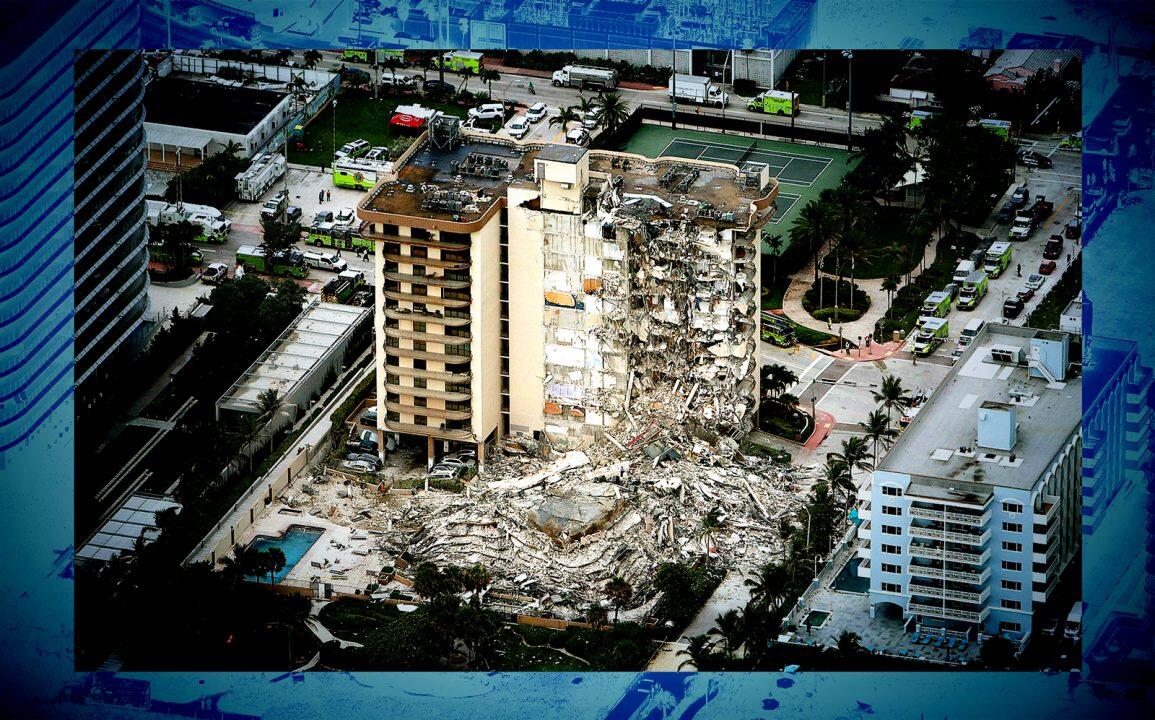Musings of Community Association Lawyer: Condominium Collapse Disaster, Questions and more Questions

On June 24, 2021, at 1:25 a.m. EDT, a portion of the Champlain Towers South Condominium collapsed in Surfside, Florida. The collapse was a human tragedy, and the investigation into the cause of the collapse is still on-going.
For me, the collapse highlighted a number of questions and issues related to condominium ownership, operations, maintenance and statutory requirements for all condominiums, new and aging. The issues are not new. In my thirty-six years of practice, the questions and challenges regarding costly maintenance projects have regularly been part of conversations with clients during all that time.
Putting aside the history and causes of this particular disaster, let’s look at the areas of concern for all condominiums and multi-story attached dwellings in the form of a checklist for Board members and Association members.
- Where is the condominium located? Is it coastal or interior? Is it in the southern part of the State?
- When were the units built?
- Have the condominium property, dwellings and infrastructure been inspected as part of a reserve study? If so, when was the last reserve study?
- Have there been inspections of roofs, elevators, sea walls, pools and pool equipment, roads, clubhouse, etc.? If so, when was the last inspection?
- Who conducted the inspection? Was it a consultant, a Professional Engineer, a board member, a contractor?
- Do you have a written report on the condition of the structure of the building and the windows; the plumbing, the electrical systems, the elevator, the pool, the roads?
- Does the report include includes prioritization of the work to be done ranked in order of immediate need?
- Who received the report? Was it just provided to the Board members?
NOTE: Sharing at least portions of the report with the membership will be a valuable tool when the Board needs to move ahead on repairs.
- What is the Board of Directors’ responsibility to act on the report once it is received?
NOTE: In Florida, Directors have the affirmative obligation under the Law and the applicable governing documents to maintain, repair and replace the common elements of the condominium. The determination of when and what to repair is left to Board discretion.
That being said, the Florida Business Judgment Rule provides that Directors who get and act upon advice from experts, and act in good faith with the best interests of the property and the owners first in their minds, will be protected from personal liability if something goes wrong. But, once the Directors are on notice of a potentially dangerous condition or urgency of repair, if they don’t take action, they may have personal liability. Still there is no statutory or documentary obligation to conduct periodic inspections, or to hire an outside expert to provide a professional evaluation of remaining useful life and recommend the appropriate timetable or course of action. Don’t rely on the “Looks good to me” approach. It appears that 50-70 years may be the useful life of a high rise on the beach, and that is assuming regular maintenance and repair over the years. Buildings and populations are aging in the condominiums.
- Financial questions: Repair and replacement projects can be very expensive, especially when they have been deferred over a long period of time.
Reserves – Condominium Law provides that funding of reserves can be reduced or waived by membership vote on an annual basis. Does the membership waive the funding of reserves every year, so you have no cushion if a repair or replacement becomes necessary?
Is it the Board’s approach to figure you will just levy a special assessment down the road?
Do you have owners who are on a fixed income?
Do you anticipate that there will be owners who do not pay the assessments? If so, does the Association have money to make up the difference and pay the contractor?
Do your documents have owner approval requirements for special assessments? If the owners don’t agree, the Board may find itself in breach of its fiduciary duty to maintain, repair and replace.
Have you had Lenders inquiring whether the Association has reserves?
NOTE: If your condominium is 40 or more years old, have any lenders declined to write mortgages on units?
Have you had a conversation with the Association’s insurance professional on adequate insurance coverage if your condominium is 30 or more years old.
- Board of Directors – When you mention the need for increased assessments, or funded reserves, or a special assessment do you get a strong negative reaction from the membership?
Have there been threats of recalls and confrontational pushback from the owners because the directors levy assessments or otherwise approve expensive repair projects?
Do you anticipate having a problem getting members to serve on the Board if you are facing repair and replacement projects, and assessments, etc.?
Is your Board ready to balance Life Safety issues against prudent fiscal management and timing of deferred maintenance?
When you have put together the answers to these questions, reach out to your Association Attorney for an in-depth discussion on the next steps, and to get answers to your questions before a disaster occurs. Let’s all move ahead in a productive and responsible way to ensure quality condominium living for many years to come.
More: Ellen Hirsch de Haan, Esq.

